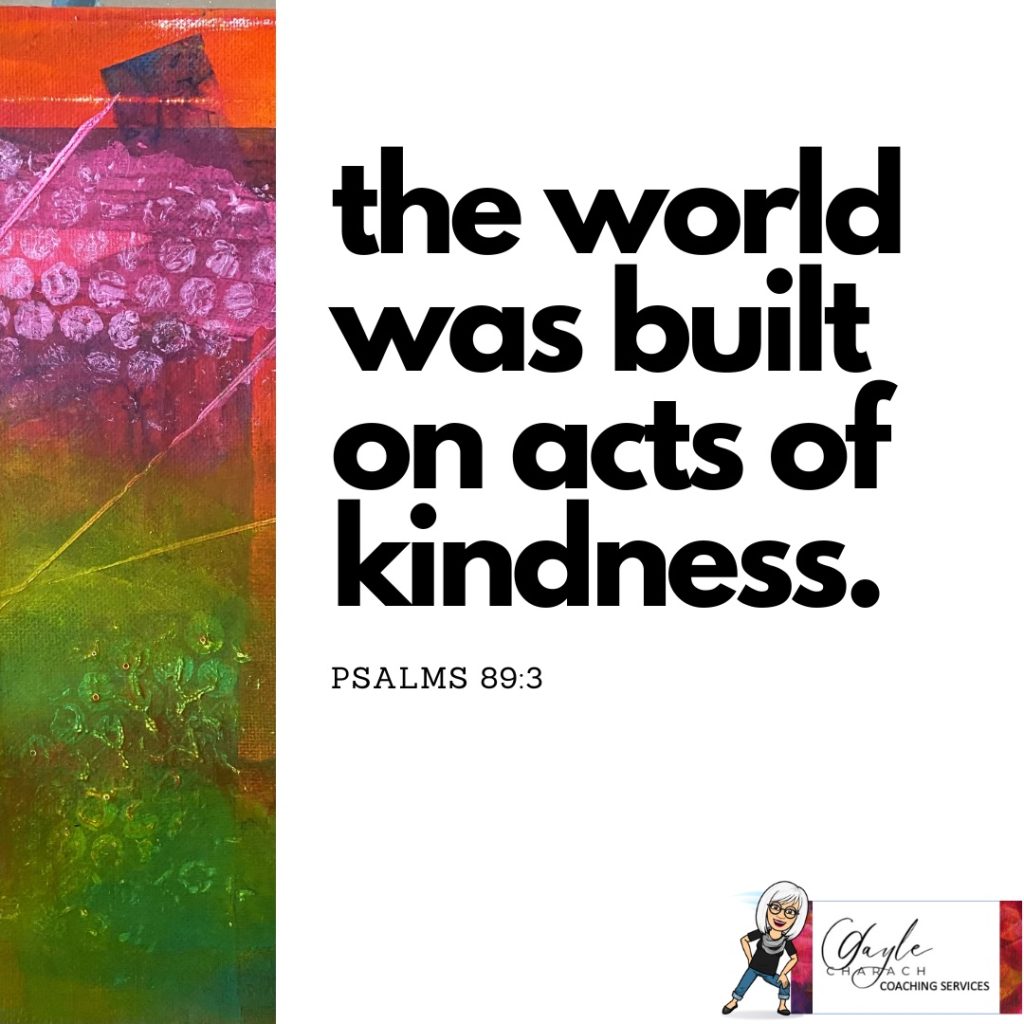My sister shared this story with me and based on my own experience just this week, it really resonated:
A father watched his young son trying to lift a heavy stone. The boy strained as he heaved to no avail. Every muscle was tense as he’d try and try again. He bemoaned to his father that he couldn’t lift it and his father asked him each time he complained if he was really using ALL his strength. The boy would go try again. After multiple times of his father asking him if he was using ALL his strength, the young boy said “Yes!” and the father shook his head and said “Son, you are not. I’ve been here with you the whole time and you’ve not once asked me for help.”
I had a friend reach out this week as she was prepping for a few interview elements at a potential new workplace. Through the nerves and mixed messages she was receiving, her balance was clearly off and she wasn’t able to think clearly.
So, she leveraged one of the strengths she knew she had – she reached out to a friend. We talked through what the expectations were, distilled the prep down to what we believed they were looking for and I reminded her to “(Be)lieve in (You)rself”. She nailed it and they loved her presentation.
The game show Who Wants to Be a Millionaire leverages this same strength, encouraging players to reach out to a friend.
Team sports demand asking for help – leaning on teammates to share in the collective activity of winning a game.
And certainly, in the corporate world, we don’t succeed without teams who rely on one another, building earned trust and mutual accountability.
If one is reluctant to ask for help – I’d be curious as to the why? Are there some beliefs about support that need to be shed? Perhaps thinking only people who are weak ask for help, or worse yet thinking oneself unworthy of help? Has there been previous disappointment in asking for help and not receiving it in the past? Does that fear of further rejection prevent one from asking for help again in the future?
When I lead people through exercises in creating resilience plans, one of the important things we focus on is “Who to Call” in a time of crisis. Think of all the people you know. Who shares your values? Who is known for helping others? Who is known for being trustworthy? Has anyone been a good listener for you already?
I’ve shared before the story of my final corporate layoff, and how my friend Tina came to my rescue. She spent the day distracting me from where my neural pathways wanted to go (to my Victim mentality). And after 8+ hours with her, I articulated that I’d never felt so calm, cool and collected on the day of a RIF before. You may have heard me say it before … “Everyone needs a Tina in their life!”
In her book, The Road to Resilience, author Sherri Mandell calls out “Community” as one of the critical first steps on the Road to Resilience. We lean on our communities to help pull us out of the chaos that comes with crises. She points out that in Judaism we pray as a collective and most of our prayers are in the plural.
I spent a year of my time building a community of Sales Enablement practitioners around the Greater Toronto area when I lived there. I was a solo practitioner, without a team at the time and knew the value of not going it alone. To this day that community of people are people I still remain close with even though our career paths no longer align in the same way.
Lesson Learned:
Resilience doesn’t mean we have to go it alone. Resilience is about becoming familiar with ALL the tools in one’s toolkit, and knowing which ones will help in any given situation.
People to lean are an essential part of everyone’s toolkit. Learn who those people are, lean on them and generously accept their gifts of help.
When you can repay kindness by helping others, you’ll see how much it will fill your own heart and recognize that as much of a gift as it is to receive the help, it’s such an amazing gift to be able to offer the help.

original art by gayle charach
